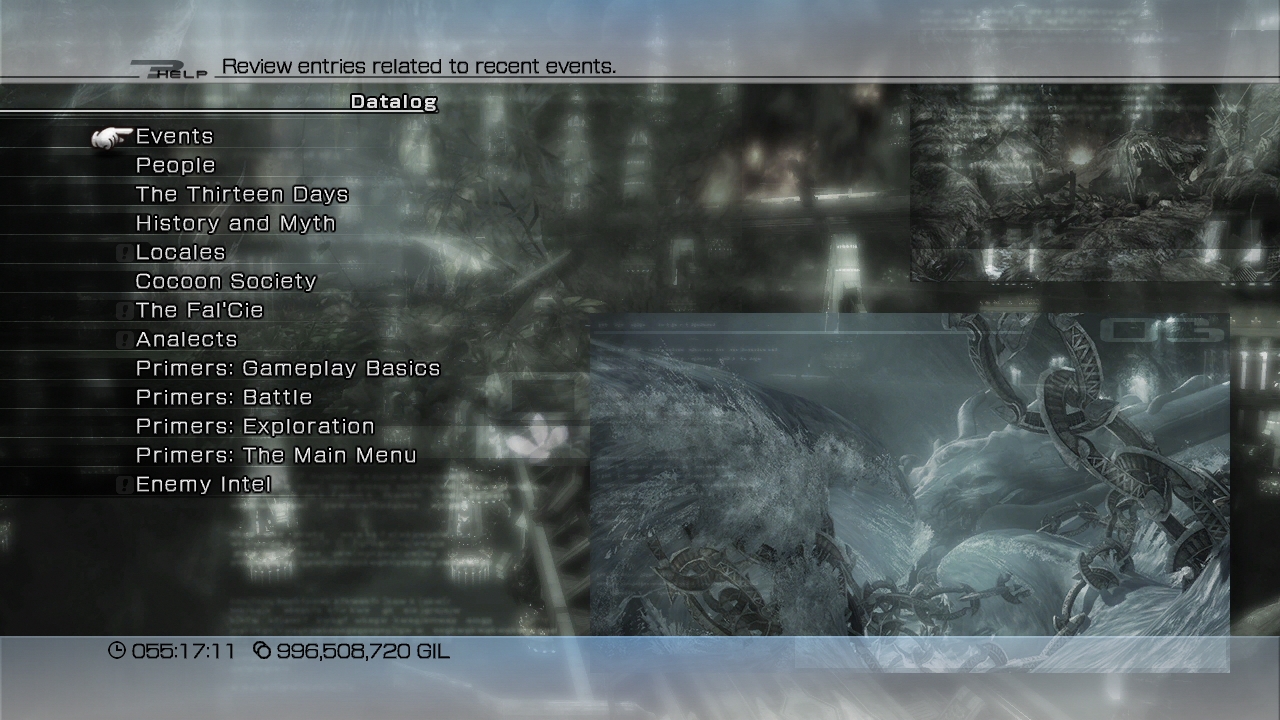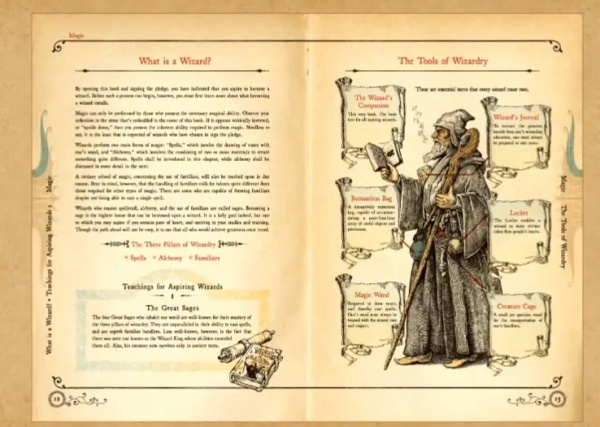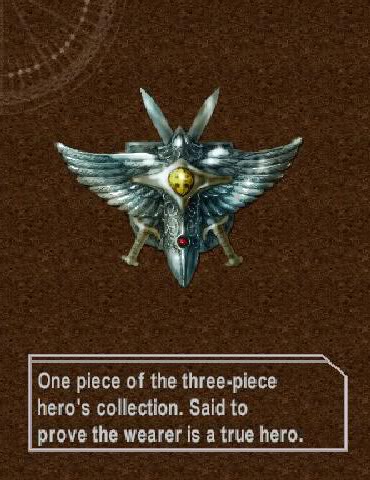Diminutive Diatribes: Encyclopedia Moronica
In-game
encyclopedias. They take many forms
throughout the game industry, from a journal entry which tells players what's
happened up till the present, to a bestiary in an RPG, to dozens of terms which
need to be explained, which aren't properly explained in the story, which
players need to understand in order to know what the hell is going on.
| While sometimes a useful tool, these aren't necessary to play video games. And they never should be. |
Encyclopedias
in games aren't always a bad thing.
Bestiaries can make great tools, alchemy guides can be very useful, and
references to controls that you've learned but might have forgotten are
essential if you need to put a game down for a long period of time. However, too often in this day and age, games
are using encyclopedias as a crutch.
They think that there's no reason to sit down and explain what's going
on or what have you because it's easier to just throw a term out there and let
the players do the work themselves to try and understand it. Or worse, they are repositories of
information that is necessary to understand the story, but which the game
couldn't bother to tell itself, due to budget problems, disrupting the flow of
the game, or just general laziness.
Developers,
take notice. If you drop a term like Fal
cie, necrology, nethicite, etc. but don't properly explain what it is...then
you're just going to confuse and annoy your players. If this term is important, then don't shove
its definition into an encyclopedia in-game.
We have wikis online if we really want to know more about it. If it's important, explain it to us, the
players. If it's not, then that negates
the entire point of including an encyclopedia, because if it's not important,
why should we care? Why should we do
YOUR job in trying to figure out what a term means when we paid you for this
game? And if these terms are essential
to a story and you just dump them in an encyclopedia and tell us to research on
our own, then you, the developer, have failed at storytelling. You have failed at your job of telling us a
story or explaining a concept. And last
I checked, if someone fails to do their job, they get fired.
 |
| This look of horror? Yeah, it's what gamers get when they realize their game has more required reading than their school work. |
Final
Fantasy 13 is one of the most disgusting abusers of this principal. It dumps huge blocks of terms from the game
into an itemized list that takes hours to go through, slowing the game to even
more of a crawl than it usually is. Some
biographies are included for characters, some with events we have seen and some
which happened before the story, so if you want to understand everything then
you have to read them all. And some
entries in this encyclopedia CHANGE over time, so you have to re-read them
occasionally. This is just a waste of
time. True, a number of these terms can
be ignored, but some, like what a Fal Cie and a Lcie are can cripple the impact
of the story if not explained. The story
tries to explain a few of the terms, but often times it leaves the player to
discover who and what the gods of the world of Cocoon are and why they
matter. Who are the individual Fal
Cie? What impact do they have on the
players or the world? You'll never know
unless you read! And it is all explained
in such a bland, annoying way, with a drab grey menu screen with nothing
exciting about it at all. This is the
most moronic way to use an in-game encyclopedia.
 |
| Hope you enjoy grey menus and generic fonts. Cause this datalog(encyclopedia) is going to take you hours to read. And the reading is required. |
If you want
an encyclopedia in a game, if you MUST include it, then take a lesson from Ni
No Kuni. Ni No Kuni's encyclopedia is
set up like an ancient wizarding tome, with colorful illustrations, an old
timey paper look to it, and above all else, no obligation to read it if you
don't want to. It has a bestiary, an
alchemy recipe list, item lists, spell lists, and a world map for reference. That is the key word. REFERENCE.
You don't need to look at it to play the game, but perhaps you want to
know what skills a monster can use or where to buy an item? Then you have your encyclopedia. There are stories included in the book that
aren't told anywhere else, such as the source of an eye in the sky which causes
a storm or why your companion Mr. Drippy has a lantern in his nose. However none of them are required
reading. They add to the world,
certainly, but you can get by fine without reading them. These phenomena are explained in-game, while
more is there if you want it. Mr. Drippy
is a fairy and has a lantern attached to his nose because...fairies, am I
right? The eye in the sky creates a
storm and is controlled by the bad guy, it's ancient magic. Simple.
Why is the eye in the sky? Well,
you don't need to know, but if you want to, there's a story for it. That's how to use an encyclopedia
in-game. It follows the logic of older
titles like Wild Arms, Ultima 7, and Final Fantasy 6. There are stories waiting to be found all
about the world, told by npcs, hidden in bookcases, or just as side
events. They help add to the world, they
help build it, but they aren't required to understand and appreciate the
story. There's two weapons in Final
Fantasy 6, both called Atma weapon. Do I
need to know what they are? Not
really. Can I find out if I want to? Certainly.
What happened to Blackthorne in the Ultima universe after Ultima 5? Do I need to know? Nope.
But if I want to, I can find out.
The remake of Wild Arms for the Playstation 2 even includes an entire
novella with interesting characters, plot twists, and high stakes...none of it
is connected to the game and you don't need to look at it at all to win the
game. But if you take an interest, it's
there for you.
 |
| You want to include an encyclopedia? Make it interesting, make it unique, and most importantly, make it unnecessary. Ni No Kuni nails this principle. The Wizard's Companion is gorgeous. |
If you're
going to include extra details in a game, be it journal entries, audio logs,
letters, or an entire encyclopedia on the world, ask yourself two
questions. 1) is it necessary? If yes, then ask yourself if it flows along
with the game or just takes players out of the experience. If it takes them out of the experience, then
you have a problem. 2) Is it enjoyable/fun? Do these entries add to the world? Do they make the experience something
more? If not, then why include it at
all? Extra details in a game should add
to it, not make it a slog.
On the
whole, still not sold on the idea of encyclopedias in games, but I recognize
that they can be harmless or at least offer extra details for inquisitive
minds. I prefer those details to be
woven into the game world organically, like finding an old man with a legend to
share or reading a random book on a book shelf to hear about an ancient and tertiary
conflict, but there's no harm in adding extra bits in the form of an
encyclopedia entry. However, they should
never, ever be mandatory. Slowing a game
to a crawl because you need to learn about what the hell a bio-static electro
gauntlets or a gravity discharge bomb is will only annoy players. And annoyed players are more likely to avoid
or abandon the game.


No comments:
Post a Comment